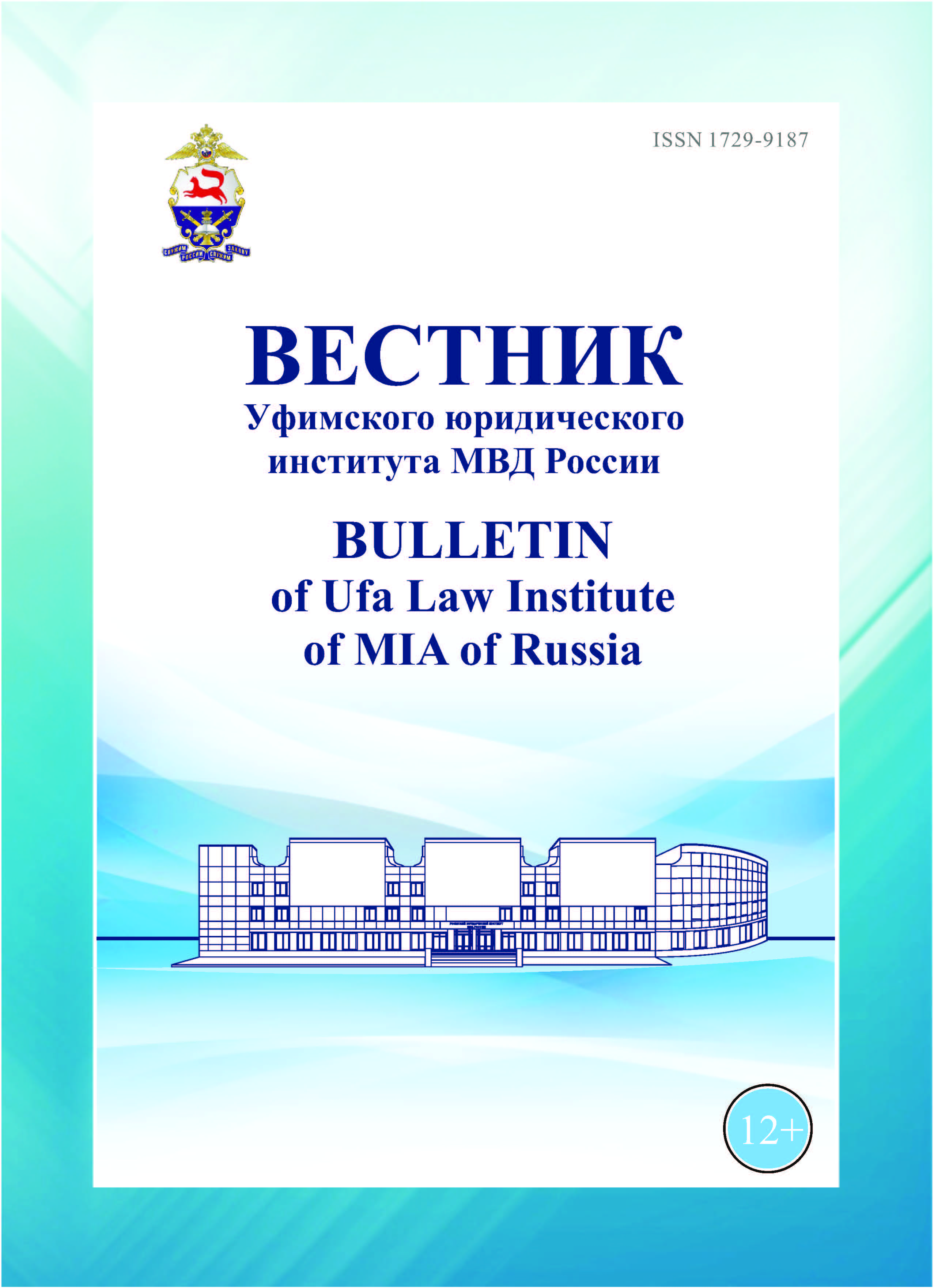UDC 343.851.5
The article examines some aspects related to the influence of the Internet on the spread of the Columbine ideology through propaganda on social networks and detailed coverage of events by the media. Based on an analysis of the works of foreign and domestic researchers, the author identifies a number of practical steps aimed at preventing of crimes of this type in the future. In particular, the article proposes to introduce mandatory authorization in social networks and instant messengers using a passport, and legislative restriction of information spread by the media, including via the Internet and regarding the identity of the school shooter and the tactics of their attack.
attacks on educational institutions, Columbine, school hooting, the Internet, social networks, mass media, “Werther Effect”, operative investigative activities
1. Krukovsky V. E., Mosechkin I. N. Criminal legal problems of counteracting activities aimed at inducing murders and suicides // Law. Journal of the Higher School of Economics. 2018. No. 4. P. 196-215. (In Russ.)
2. Puchnin A.V., Puchnina M.Yu. Columbine ideology as an extremist and terrorist threat to the national security of the Russian Federation // Society and Law. 2021. No. 2 (76). P. 38-43. (In Russ.)
3. Malkki L. Political elements in post-Columbine school shootings in Europe and the United States // Terrorism and Political Violence. 2014. Vol. 26. No. 1. P. 185-210.
4. Puchnin A. V., Puchnina M. Yu. The influence of destructive Internet content on the formation of Columbine ideas among minors // Bulletin of St. Petersburg University of the Ministry of Internal Affairs of Russia. 2021. No. 3 (91). P. 115-120. (In Russ.)
5. Kulikov A. G. On some aspects of operational-search counteraction to Columbine in social networks // Problems of law enforcement. 2021. No. 4. P. 30-34. (In Russ.)
6. Samoilov S. F., Lapsar M. V. Legal analysis of the elements of criminal acts committed by representatives of the Columbine movement // Bulletin of Krasnodar University of the Ministry of Internal Affairs of Russia. 2021. No. 4 (54). P. 35-42. (In Russ.)
7. Ivanov A. V. Virtual destructiveness and social space: towards the formulation of the problem (based on materials from field studies of the Columbine ideology) // Kazan Pedagogical Journal. 2020. No. 4 (141). P. 274-279. (In Russ.)
8. Karpov V. O. The Cult of Columbine: the main determinants of massacres in schools // Bulletin of Kazan Law Institute of the Ministry of Internal Affairs of Russia. 2018. No. 4 (34). P. 442-446. (In Russ.)
9. Kyppö J., Semenov A., Veijalainen J. Analyzing Presence of School-Shooting Related Communities at Social Media Sites // International Journal of Multimedia Intelligence and Security. 2010. No. 3. P. 232-268.
10. Zamyshevskaya E. A., Kazantseva I. L. Psychological and linguistic approach to the analysis of the personality of the creator (administrator) of a destructive community in the Internet space through the prism of the names of such communities (based on the communities of the school shooter subculture) // Bulletin of Kaluga University. Series 1. Psychological Sciences. Pedagogical sciences. 2022. Vol. 5. No. 2 (15). P. 39-47. (In Russ.)
11. Solodnikov V. V., Zaitseva A. S. The use of social networks and the socialization of Russian teenagers // Sociological science and social practice. 2021. Vol. 9. No. 1 (33). P. 23-42. (In Russ.)
12. Davydov D. G., Khlomov K. D. Mass murders in educational institutions: mechanisms, causes, prevention // National psychological journal. 2018. No. 4 (32). P. 62-67. (In Russ.)
13. Ferguson C. J., Coulson M., & Barnett J. (2011). Psychological Profiles of School Shooters: Positive Directions and One Big Wrong Turn // Journal of Police Crisis Negotiations. 2011. No. 1 (2). P. 141-158.
14. Malova E. O. Modern realities of asocial manifestations of adolescents in the Internet space // Innovative development of professional education. 2020. No. 2 (26). P. 107-114. (In Russ.)
15. Fox C. And Harding D. J. School Shooting as Organizational Deviance // Sociology of Education. 2005. January. Vol. 78. No. 1. P. 69-97.
16. Gamzina A. V. On the issue of the need for limited participation in the operational investigative activities of juvenile affairs units and local police officers // Bulletin of the Siberian Law Institute of the Ministry of Internal Affairs of Russia. 2022. No. 3 (48). P. 70-76. (In Russ.)
17. Albakov Kh. A. On the issue of optimizing the administrative and legal status of the local police commissioner in the field of detection and detection of crimes // Theoretical and applied aspects in the field of humanities: materials of the V International Scientific and Practical Conference. Ryazan: Limited Liability Company “Concept Publishing House”, 2023. P. 188-189. (In Russ.)
18. Sukhodolskaya Yu. V. Factors determining the commission of mass murder in an educational organization, and the mechanism of criminal behavior of a school shooter // Bulletin of the University of the Prosecutor’s Office of the Russian Federation. 2021. No. 3 (83). P. 64-70. (In Russ.)
19. Karpova A. Yu., Maksimova N. G. School shooting in Russia: what matters? // Power. 2021. Vol. 29. No. 1. P. 93-108. (In Russ.)









